Join us @ IJCAI 2019 on August 11th
Register here
| 08:30 | Welcome and setting the stage
|
| 08:45‑09:30 | Invited talk: Artificial Intelligence for Development (AI4D) programme or how can a Global South Network of AI researchers be built and what are the benefits?
|
| 09:00‑10:00 | Session 1: Life and Society
|
| 10:00‑10:30 | Coffee Break |
| 10:30‑12:00 | Session 2: Understanding our Planet from images
|
| 12:30‑14:00 | Lunch break |
| 14:00-14:45 | Invited research talk: X5GON – a project on Artificial Intelligence and Open Educational Resources
This talk fits SDG 4: Quality Education.
|
| 14:45-15:30 | UNESCO Debate: AI and the Information Sphere: Solutions for SDGs Questions of Rights, Access, Openness and Multistakeholderism
|
| 15:30-16:00 | Coffee break |
| 16:00‑18:00 | Session 3: Education
Session 4: Setting targets and measuring impact
|
| 18:00 | Wrap-up and final words |
Meet the speakers
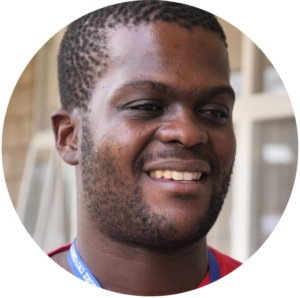

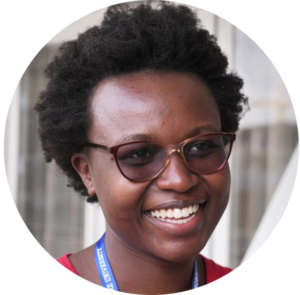
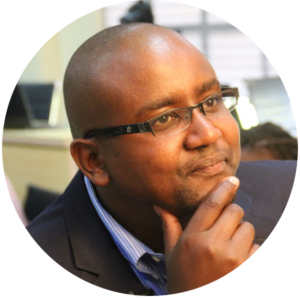
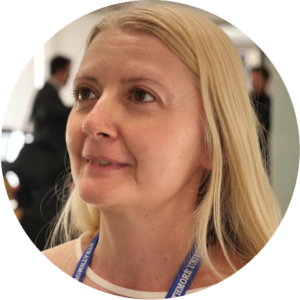
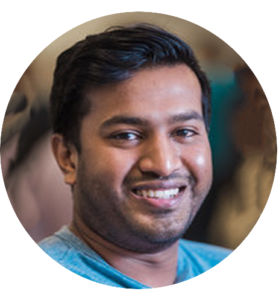
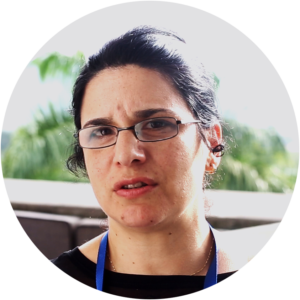
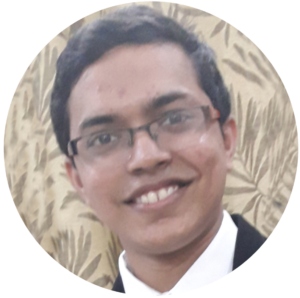

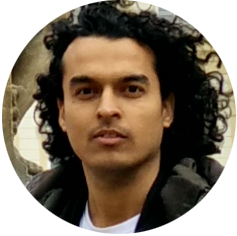


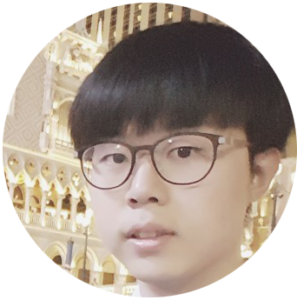
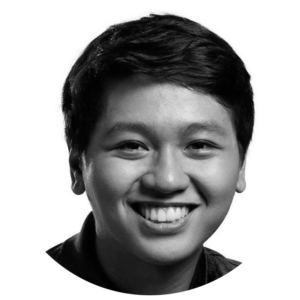
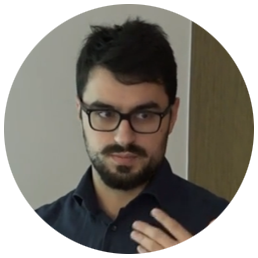
Workshop motivation
The motivation supporting this workshop is that contributing to the SDGs through AI could represent a win-win approach in which not only the goals themselves receive due attention but moreover this attention will be shared and integrated and allow a fruitful North-South cooperation.
The workshop will provide a forum for the presentation and discussion of analyses of projects, initiatives and existing research networks with emphasis on identifying a portfolio of AI projects addressing SDGs. Particular interest will be placed on presentations that consider alternative ways of using AI for SDGs where it can be argued that they will aim towards creating communities around the SDG themes and thus introduce the sustainability and scalability of AI research networks. The workshop will focus on understanding how and when AI is successful in addressing the different SDG challenges and will aim at providing opportunities to integrate more research expertise –and more diverse research expertise in these tasks.
We also hope to assess and deepen our understanding of AI capacity and use in the North-South relationship with the aim of developing a capacity building agenda. An overall medium term objective is to establish a Global Network of Excellence in AI cross-cutting all regions of the world to address and contribute to sustainable development through the responsible and inclusive design and deployment of AI for SDGs. The goal of such a global network will be to engrain the principles of the SDGs into the awareness of AI researchers.
Building a Global Network of AI researchers
A recent common effort by ICDE, UNESCO and Knowledge 4 All Foundation (K4A) including the newly established UNESCO Chair in AI was a mapping of AI talents, actors, and knowledge hot spots in the Global south, which illustrates the extent to which universities, start-ups, and other sectors already engage with AI in 4 regions: ASIA, LAC, MENA, and SSA. The results show a surprising number of 600 entities from 33 countries.
This resulted in the decision of launching the Network of Research Excellence in Artificial Intelligence in Africa with the purpose of providing a better understanding of the current state of capacities across Sub-Saharan Africa to engage in AI for development. The idea now is to expand, scale and sustain a Global Network of Excellence, and mobilize it towards addressing all SDGs.
To this end, we are investing and design a range of AI for development initiatives, focusing on innovations, foundations and governance. These initiatives will support relevant research, develop AI applications that are inclusive, ethical, and rights-based, and strengthen and create appropriate capacity building programs.
Global sustainability agenda
In 2015 the United Nations General Assembly approved the important document prepared by UNESCO in which it defined 17 goals for the 21st century. These Sustainable Development Goals or SDGs address what should be considered as the most important issues for humanity and society. They are used today as a roadmap by many institutions and, in particular, by the UNESCO Chairs over the world who have the task of promoting these questions and contributing from the perspective of education and research.
AI and Sustainabiltiy
Recent developments in AI have managed to attract the attention of stakeholders beyond the research communities and industries. Policymakers in international IGOs, NGOs such as UNESCO, OECD, European Commission and a number of UN Member State governments have embraced the idea of AI with a great deal of furore as well as skepticism. All these players are setting up working groups in order to understand better the implications of AI on a larger scale and its positive and negative implications to their own nations and global citizens.
It is therefore understandable that SDGs and AI should meet: as data is being produced and solutions are being shared, quite unsurprisingly academia and industry have been taking up the challenge of meeting the SDGs with artificial intelligence driven solutions.
Inequalities and AI divide
Yet a great key challenge that could deepen inequalities across the globe is the so-called AI divide. The clear majority of AI experts are in North America, Europe and Asia. Other regions and sub-regions are much less represented among the expertise pool, and though there are many new AI-related initiatives emerging around continents, this expertise remains essentially unseen by Northern technology hubs.
Such lack of diversity can entrench unintended algorithmic biases and build discrimination into AI products and result in a deficit of educated practitioners. And these are not the only gaps: for example in the case of Africa, fewer African AI researchers and engineers means fewer opportunities to use AI to improve the lives of Africans.
Knowledge 4 All Foundation and UNESCO Chairs are organizing a 1-day workshop of experts in Artificial Intelligence addressing scalable solutions or exemplars for SDGs with an emphasis on creating potential sub-networks of researchers around each of the 17 SDGs.
The result of the workshop will be to build the global ML/AI landscape for SDGs, understand the scope of a potential Network of Excellence in AI across all regions and provide inputs for an AI roadmap for SDGs, including designing a viable plan for cross-continent cooperation.
We solicit three categories of papers: research papers, on-going work papers, and position/vision papers.
- Research papers present use cases of AI for the SDGs. They may present platforms or systems or in-the-field projects; they may require the development of novel AI tools.
- On-going work may cover any aspect of the development of new AI tools and methodologies to address SDGs. In this case the project or action may not be terminated, and, especially in those cases where the expected impact is long-term, the evaluation may be incomplete.
- Position/Vision papers may concern untouched challenges or the use of technologies which up to now have not been tested on the ground.
Topics should address (at least some of) the UN Sustainable Development Goals:
- Goal 1: End poverty in all its forms everywhere
- Goal 2: End hunger, achieve food security and improved nutrition and promote sustainable agriculture
- Goal 3: Ensure healthy lives and promote well-being for all at all ages
- Goal 4: Ensure inclusive and quality education for all and promote lifelong learning
- Goal 5: Achieve gender equality and empower all women and girls
- Goal 6: Ensure access to water and sanitation for all
- Goal 7: Ensure access to affordable, reliable, sustainable and modern energy for all
- Goal 8: Promote inclusive and sustainable economic growth, employment and decent work for all
- Goal 9: Build resilient infrastructure, promote sustainable industrialization and foster innovation
- Goal 10: Reduce inequality within and among countries
- Goal 11: Make cities inclusive, safe, resilient and sustainable
- Goal 12: Ensure sustainable consumption and production patterns
- Goal 13: Take urgent action to combat climate change and its impacts
- Goal 14: Conserve and sustainably use the oceans, seas and marine resources
- Goal 15: Sustainably manage forests, combat desertification, halt and reverse land degradation, halt biodiversity loss
- Goal 16: Promote just, peaceful and inclusive societies
- Goal 17: Revitalize the global partnership for sustainable development
All papers should be a maximum 6 pages in length. Position papers can be shorter (2 pages). One additional page of cited references is allowed. You may also attach full papers of any format or length that supplement your submission, but we do not guarantee to take these into account in the reviewing process. You may submit work that has previously been published — but please give details of how it has previously been published. Our review process will not be blind: please submit your contributions as PDFs containing the authors’ names.
In order to encourage submissions from as many regions as possible conditional submissions are possible: the authors may send in their contribution even if the financial backing necessary to attend the conference is not yet secured. The organizers will attempt to help find sponsors.
Submission is via Easychair here.
We intend to make accepted contributions available online, linked to the workshop page. There will be no formal published proceedings.
Important dates
Apr 26, 2019: deadline for submission of contributions to workshops
May 10, 2019: paper acceptance notification
Aug 10-12, 2019: IJCAI-2019 Workshops
Any enquiries should be sent to info@k4all.org email address.
Programme Committee
- Colin de la Higuera, Université de Nantes, UNESCO Chair in teacher training technologies with OER
- Davor Orlic, COO, Knowledge 4 All Foundation
- Vukosi Marivate, University of Pretoria, ABSA UP Chair of Data Science, Deep Learning Indaba community
- Kathleen Siminyu, Africa's Talking, Deep Learning Indaba community
- Mitja Jermol, Jozef Stefan Institute, UNESCO Chair on Open Technologies for OER and Open Learning
- Maria Fasli, University of Essex, UNESCO Chair in Analytics and Data Science
- John Shawe-Taylor, University College London, UNESCO Chair in Artificial Intelligence
- Marko Grobelnik, Jozef Stefan Institute, Digital Champion Republic of Slovenia
- James Hodson, CEO, AI for Good Foundation, Senior Researcher, Jozef Stefan Institute Artificial Intelligence Lab
- Emine Yilmaz, University College London
- Marcelino Caberera Giraldez, European Commission, Joint Research Centre (JRC-Seville)


